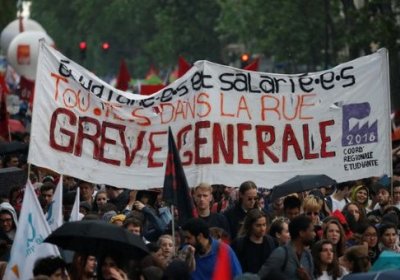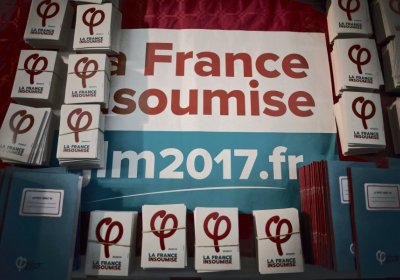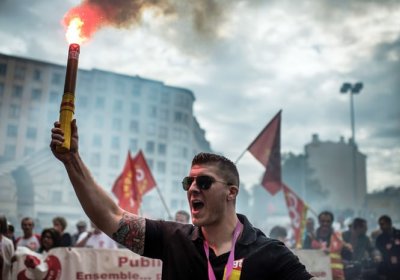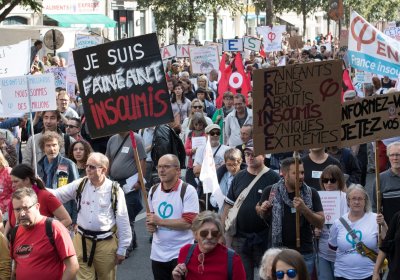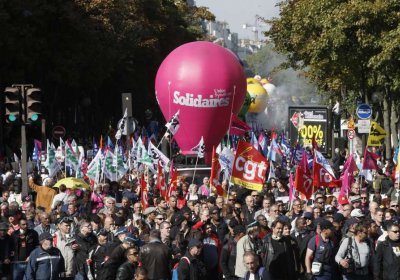French police and protesters clashed in Paris on May 22 after unions — angered by years of public-sector pay cuts and President Emmanuel Macron's economic reforms — urged state employees to stop work and join nationwide street protests.
Riot police charged at protesters with batons in central Paris, firing stun grenades and tear gas. Police said 20 demonstrators were arrested.
The demonstration was called by the large labour unions plus many smaller ones, and involved the organisation of street rallies in about 140 cities, towns and villages across France.
